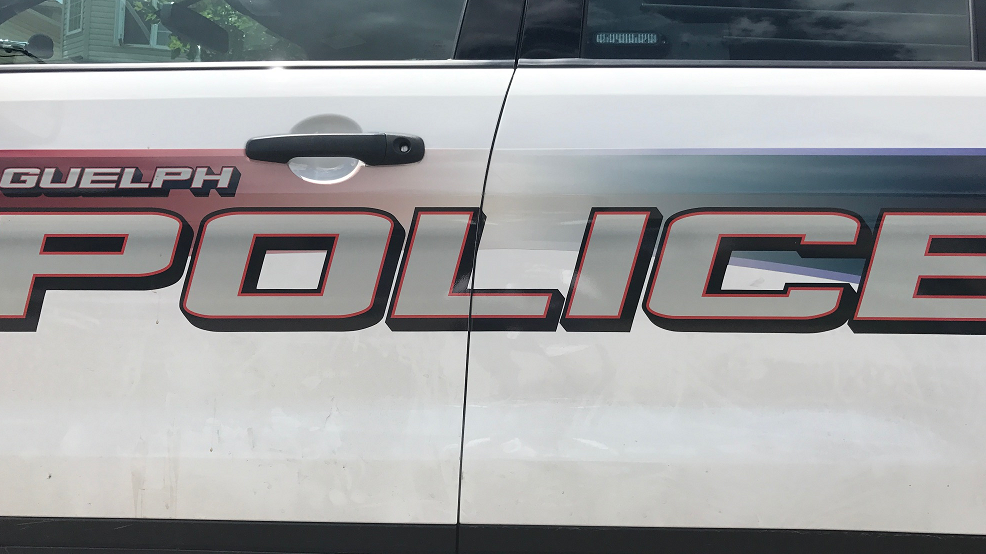New organization raising funds for domestic violence survivors

Posted Sep 28, 2022 05:30:00 PM.
Last Updated Mar 24, 2023 09:52:43 AM.
While on her own healing journey, one local domestic violence survivor is lending a hand to others.
Amanda Kroetsch has been an entrepreneur since she was 19, and most recently owned a zero-waste restaurant in Vancouver called the Living Cafe.
But after being assaulted and abused by her former partner, Kroetsch was left with complex PTSD, suicidal thoughts, and a brain injury. As a result, she spent her life savings on medical, mental health and legal fees, and had to file bankruptcy and move in with her family.
Now, she’s using her entrepreneurial skills to help herself and other survivors heal, with her new organization, Domestic Violence Victim’s Alliance (DVVA).
DVVA collects gently-used items from the community and sells them by donation, on a pay-what-you-can scale.
“Our shoppers can pay what they want, what they can afford,” she said. “Our first priority is raising funds. And all the money that comes in goes to support local (domestic violence) survivors with mental health, medical and legal fees. And then our second priority is direct donating.”
That means profits and anything they don’t sell, or an item someone is especially in need of, get directly donated to local domestic violence survivors in need.
Since financial abuse is a common element of domestic violence, and taking a trauma-aware approach with the organization, they’re “not interested in policing how the survivors we support spend their money.”
“So I’m committed to just completely getting rid of that and leaving how the survivors spend that money up to (them),” she said. “But I say medical, mental health and legal fees, because in my personal experience, those are the three areas that tanked my financial world.”
But if a survivor wants to use the money to say, pay rent, she said that’s great; the point is merely to take some of the stress off of survivors while they heal.
While it’s targeted at domestic violence survivors, she’s not restricting who she helps, and has so far helped several newcomers to Canada with donations.
“So we’re not really limited, like we’ll support wherever we can, if we can.”
Plus, the PWYC model makes shopping — and donating — more accessible for everyone, especially lower-income community members.
She’s currently set up shop at local markets in Kitchener, St. Jacobs Farmers’ Market, and Hespeler, and in the four months she’s been operating, she’s helped around 15 people in the community who she said lack financial security — including herself.
“I want to make sure that I’m really crystal clear and transparent about the fact that I am a beneficiary of my non-profit. So I am absolutely someone who is benefiting from my services right now,” she said. “I’m building this while putting the oxygen mask on first, so to speak.”
Although, she said she’s primarily utilizing the money that goes to her for operating costs, and has a separate fundraiser to raise money for her own legal battles.
It started with Kroetsch trying to raise money for herself by reselling thrifted items; that turned into collecting donations from community members and selling those online.
The community was so receptive to providing donations that it got to the point where she couldn’t get to everybody in one day.
“So now my house is getting full of boxes and bags, I can’t move inventory fast enough.”
So started having garage sales to try to sell things faster, and moved to a pay-what-you-can model: it made purchasing and donating more accessible for those in need, but was also easier on her, since no pricing was involved.
“At that point, I was like, I could really grow this, and help other people too.”
After that, she moved to the markets, starting with the Kitchener Market, where she was “just blown away by the generosity,” she said, noting that some people would overpay for items since it was for a good cause.
“As well as just how amazing it felt when families would come and start filling bags, and maybe just give me a couple bucks. Some of them shared that they were new to Canada, and they would just pay what they could. And I thought this is really great … it’s really balancing itself out.”
Since then, she’s expanded to several other markets, and still sells things online. Many of their donations have come from what she calls a collaborative consignment service, working with people who are moving and “have tons of stuff they’re getting rid of. Not just a couple bags or boxes.”
“So I’ve been going into people’s homes and taking pictures and measurements of the items that they are wanting to sell. Sometimes the homeowners will have items they want to sell, they’ll have items they want to donate. And they’ll have a deadline because they’re moving.”
So they let her know when the items need to be gone by, and she tries to sell them for a 50/50 split. If it doesn’t sell, they donate the items to DVVA.
Her vision is to have a pay-by-donation store that’s trauma-aware and non-gender conforming in terms of how the store is set up. There will also be times for people to shop after-hours, so people with social anxiety or brain injuries can have a comfortable environment to shop.
She wants to hire volunteers and staff, and offer job opportunities for DV survivors to work “within their capacity.”
“So, if you have brain injury, for example, or complex PTSD, it’s really hard to have the capacity to jump back into the work world. So it really does need to be customized for people.”
Something a lot of people don’t realize, she said, up to 80 per cent of DV survivors have symptoms of a traumatic brain injury.
“And you so you might not even think, as a survivor, what’s prolonging your symptoms and healing is an undiagnosed brain injury.”
Using that model, if people can only work for an hour, that’s fine, they can come to work for an hour, just “so they can get back on their feet.”
In the meantime, she’s in desperate need of more storage space, and volunteers to help with things like going through donations and setup and tear down at markets.
“It’s just me in a pickup truck right now,” she said. “So I have to really balance my time between the pickups, markets, and outreach.”
In the near future, she’s also hoping to have more storage space, ideally a donation hub where people can drop off “all kinds of things,” and she could sell the items or deliver them to survivors afterward.
Most organizations helping domestic violence survivors can’t accept direct donations for lack of space, and for safety reasons — locations and need are often undisclosed to protect the survivors from the abusers.
“When I started the nonprofit, I didn’t realize that was missing,” she said. But as she began building relationships with other organizations, like Shelter Movers, she realized how many people wanted to directly donate, but couldn’t. Kroetsch wants to fill that gap with DVVA.
For instance, she said, the survivors could put together a list of what they need, and she could do the rest, collecting the items and holding onto them until the move happens.
She’s since applied for a grant that will hopefully help her speed up the process of getting a brick and mortar location. If all goes well, the shop should be open in the new year.
Donations can be made by appointment by contacting her at dvvalliance@gmail.com or on social media. You can learn more here.








